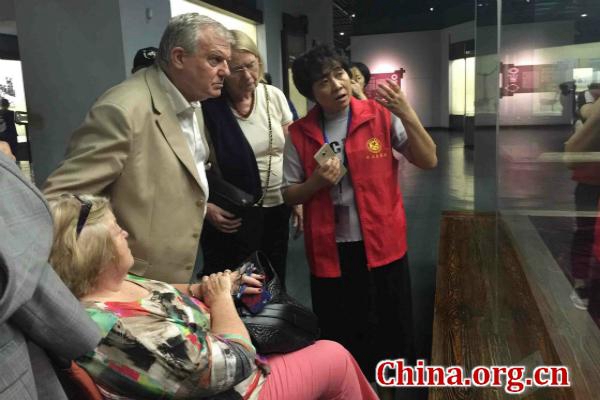Michie first visited Wuhan, the epicenter of the coronavirus outbreak in central China's Hubei province, in 1998 during a massive flood of the Yangtze River that seriously threatened the city.
"I was privileged as the only foreigner permitted to be in the city at the time of great crisis for Wuhan and all its citizens. I learned first-hand the exceptional bravery and stoicism that must be embedded into the character of the people of Wuhan," said Michie.

Alistair Michie, secretary general of the British East Asia Council, listens to a guide at the Hubei Provincial Museum in Wuhan, capital of central China's Hubei province, 2018. [Photo courtesy of Alistair Michie]
In later years, Michie has been a regular visitor to Wuhan, with a focus on understanding China's history in order to try and make sense of the country today. "I guess I was following the ancient pattern in China of trying to 'use history as a mirror,'" he said.
In Michie's view, the Hubei Provincial Museum in Wuhan is one of the most outstanding in China, and he was especially impressed by the unique scale of the displays from the ancient Tomb of Marquis Yi of the State of Zeng.
He also enjoys searching for traces of his own country's history in Wuhan during more recent centuries. For example, by learning more about the British tea clippers that once raced back and forth between Wuhan and London as they sought great commercial rewards transporting the first leaves of spring tea.
"Wuhan is a city of exceptional people, character, history and economic strengths," Michie said. "I know that Wuhan will rise fast from this terrible torture of the virus crisis, and its people will win new prosperity and success."




